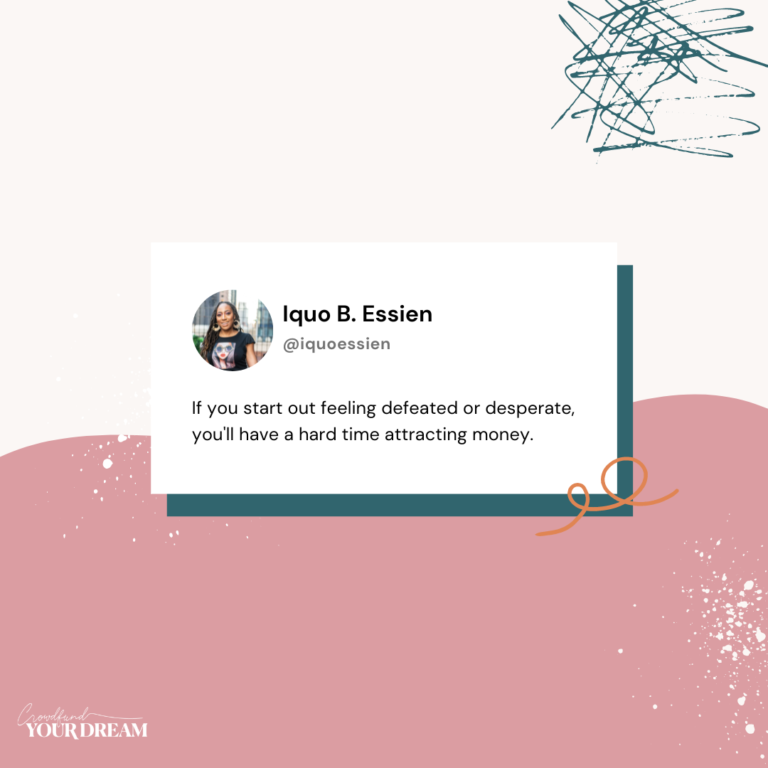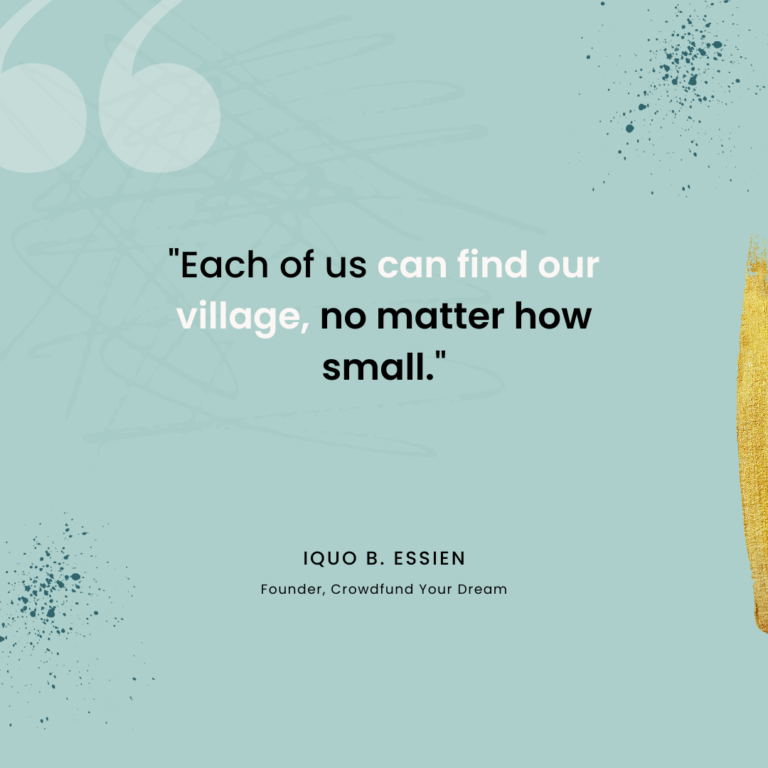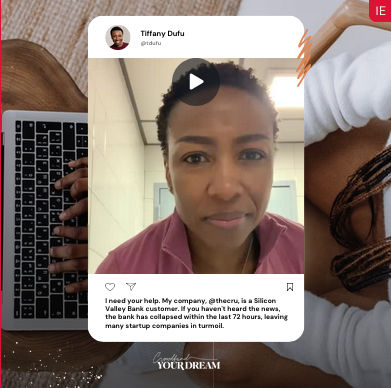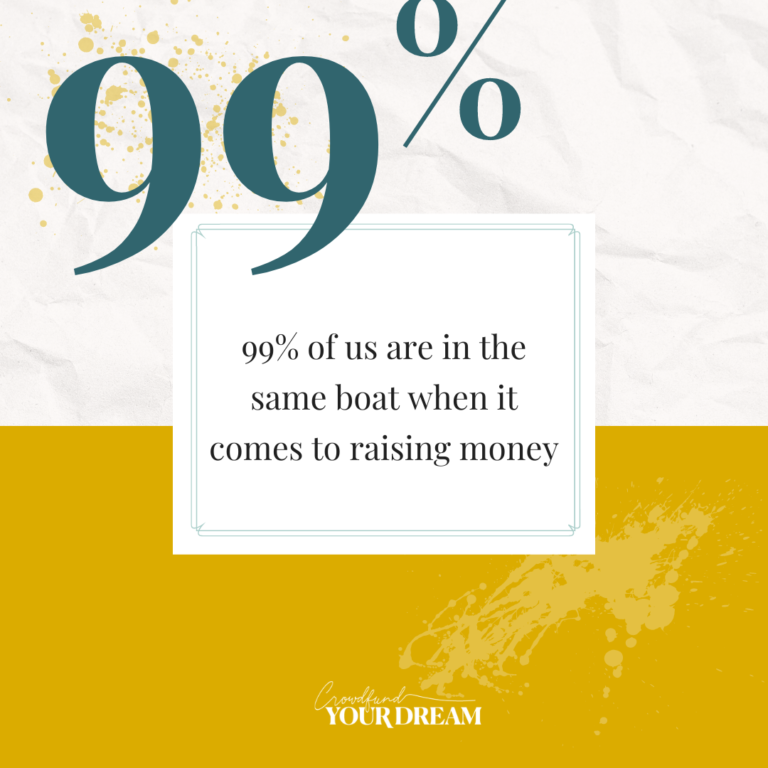I was in my second year of film school at NYU Tisch. I’d been on leave for a few years, so none of my new classmates knew me. But I’d come back with a script in hand, excited to tell an amazing story.
That excitement quickly turned to panic when, four weeks before production period was set to start, none of my classmates signed up to crew on my film.
I faced the reality that I was going to have to pay to hire a crew. But the problem was, I didn’t have any money.
If I didn’t figure it out, I wouldn’t be able to make the film and would fail the semester.
So what did I do? Four weeks before production, I launched a fundraiser:
- I snail mailed letters to friends and family across the U.S., many of whom were a part of the African immigrant community in Upstate New York where I grew up.
- I also launched an Indiegogo campaign with fiscal sponsorship through Fractured Atlas and sent a dozen emails to everyone in my network.
- I pitched the press, won a contest, and even garnered the attention of an equity investor.
Using the media, marketing, and communications strategies I’d learned from my work experiences, plus the storytelling I’d learned in film school, I raised $15,000 in 4 weeks…exceeding my fundraising goal by 25%. Imagine my surprise!
With the money, I was able to hire a crew, rent equipment, pay for meals, transportation, and a budget for my short film…which went on to win awards and take me around the world.
Since then, I’ve helped clients raise more than $50K and, just this year, set up a campaign in 5 days that raised $35K for my creative dream.
At the same time, I’ve watched way too many of my colleagues launch failing campaigns. Usually, in the first few days, I can tell whether they’re going to succeed or not based on some basic principles of fundraising and marketing.
Long story short, here are the four reasons why your fundraiser is failing:
1. Your Story: In your fundraising story, you are the lead character on a mission to do good. The crowd swoops in to help support you with their donation. I can’t stress enough how the most important part of your campaign is telling a compelling story with a call to action that galvanizes people. It has to be on point in written and visual form, and needs a clear narrative through line.
If your story fails to engage people, only your Aunty will give you money because she loves you, not because you’ve done a good job telling your story. On the flip side, if you have a great story, you might get a lot more strangers giving to your campaign.
2. Your Strategy: The majority of people whose campaigns are failing, when I ask what their strategy is, say: “I don’t have one.” If you’re reading this right now thinking, what does she mean by strategy? Let me say this: Poor planning is the number one cause of a failed campaign. That includes every single aspect of your campaign from setting up a business bank account, to choosing your campaign platforms and rewards.
You need to know what things you can do to get out of the valley, which is halfway through your campaign, after the excitement of your launch dies down, but well before your deadline, when most people have forgotten you’re alive.
Most people think of fundraising as a noun, but to fundraise is a verb. It takes action and intention. You have to ask people for money in creative ways that inspire them, rally them, create a sense of urgency, overcome their objections, offer them something desirable in return, and persuade them to help you achieve your dream. That takes strategy.
3. Your Relationships: If you don’t spend much time maintaining your personal relationships, fundraising can be very challenging. Most people underestimate how many friends will support them, and overestimate the amount of strangers who will want to support their work. They get caught up in these massive crowdfunding campaigns they see online that have thousands of people donating from all over the world.
If you have an emergency, medical situation, or a tragedy, yes, strangers who find out about it might step in and help. But if you’re doing a run-of-the-mill campaign for your project or business, the vast majority of donations will inevitably come from people who already know you.
I can tell you that if you don’t have good relationships with your friends, family, and colleagues, you’re not only more likely to have a failing campaign (source: me) but you’re also missing out on essential ambassadors who can help amplify your message and platform. At the end of the day, the success of your campaign will rise and fall on the strength of your relationships. So ask yourself: how healthy are they?
Out of all the four reasons, your relationships are the hardest to fake, make the most difference, and take the most long-term attention to build and maintain.
4. Your Marketing: If a tree falls in the forest and no one hears it, does it make a sound?
You can’t just plan a fundraising campaign–you have to market it, too. That’s the BIG PICTURE mistake most unsuccessful fundraisers make.
Digital fundraisers who launch a campaign BEFORE doing outreach are setting themselves up for failure.
The vast majority of ordinary people I’ve seen don’t reach out to enough people before launch. They wait until their campaign is live and then post it on social media. That’s basically like dropping a pebble into a lake expecting to make a huge wave, when in reality you barely make a ripple.
Social media is saturated. People are busy and distracted, even if they’re sheltering for a pandemic. Trust me, if you wait till your campaign is live to tell them about it, it’s already too late, and you’ll spend the entirety of your campaign period just trying to let them know about it.
There’s a bandwagon effect (yes, Psych 101!) where people want to be a part of something that’s succeeding and run away from things that are failing. Yes, even your Aunty will do this! Early success is the greatest predictor of the overall success of your campaign, so if you don’t tell anybody about it ahead of time, so on the day you launch you start getting traffic and donations, then have a bad couple of first weeks, you’re very likely to never reach your goal.
When you take a look at these four elements, it’s easy to see how many factors go into the success or failure of your fundraiser.
I can tell you that, far from the desperation I felt at not having my classmates crew for me, or money in the bank to fund my film, launching my fundraising campaign helped me take control over my destiny.
In that moment, my life changed because I knew that, if I could do it once, I could do it again, and nobody else had the power to make or break my future.
So if there’s one idea I can leave you with, it’s that if I could do it…
…with a pitifully small web presence, no email list, and few social media followers….
…you can do it, too! And with a little planning, get even better results.
Happy Fundraising!














